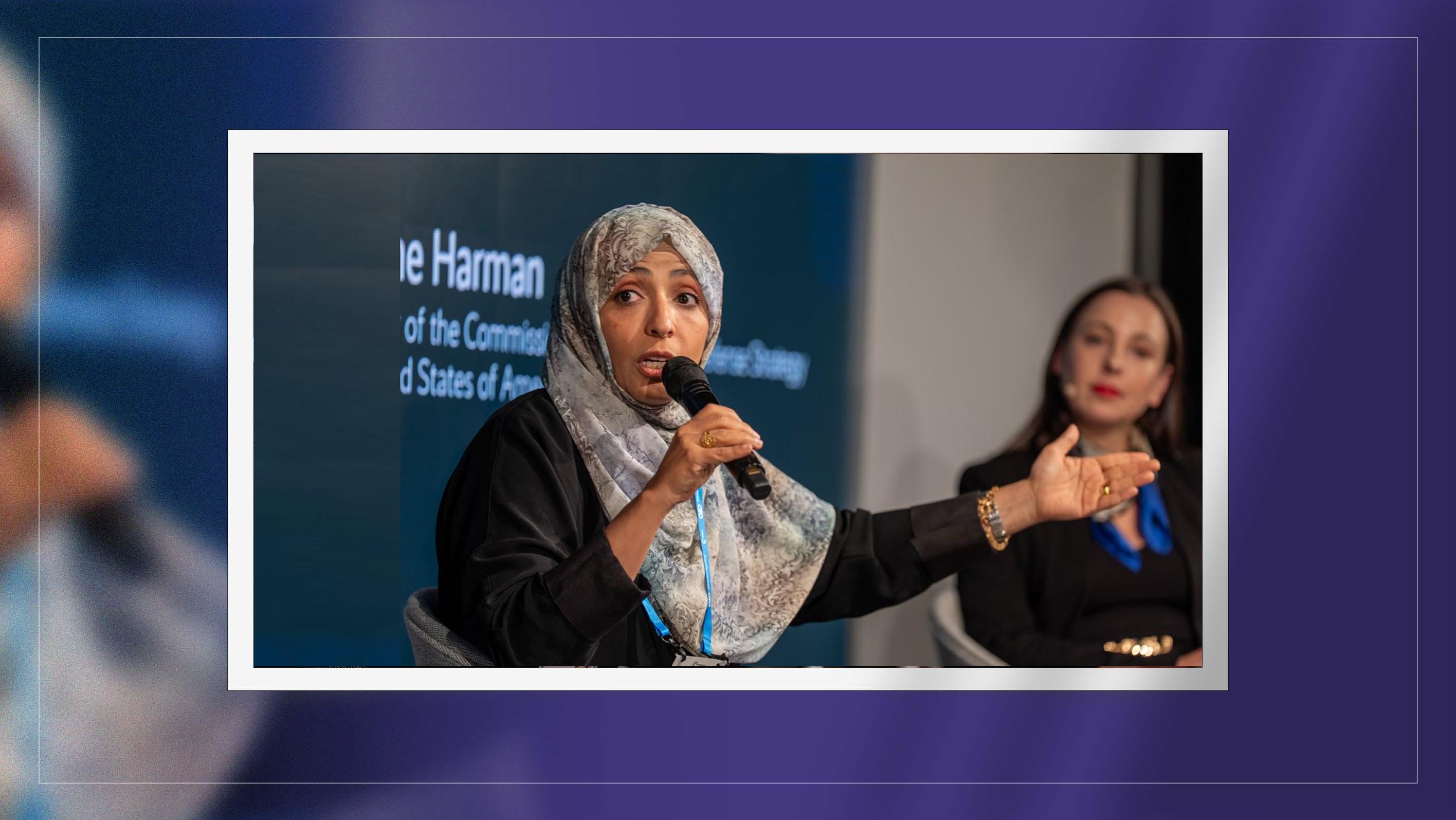Activities

Karman criticizes Western policies as hypocrisy, calls for global democratic unity
At the 61st Munich Security Conference (MSC), Nobel laureate and human rights activist Tawakkol Karman criticized Western policies towards the Middle East, citing that they have gone beyond mere double standards to outright hostility against the aspirations of the region’s people.
She asserted that Western governments have actively supported counter-revolutions and coups, undermining democratic movements in the region.
Karman stated that referring to these policies as "double standards" is an understatement, describing them instead as hypocrisy. She noted that this trend is not confined to the Trump administration but has been a consistent policy across successive Western governments, particularly in the United States. While she acknowledged Trump's aggressive stance, she pointed out that the issue transcends party lines.
Karman cited Western governments' abandonment of their proclaimed values as evidence of their duplicity. She recalled a Congresswoman's remark that "our values are our strongest weapon" and agreed with the sentiment, urging Western leaders to uphold the principles they claim to champion. She warned that failing to do so weakens their credibility and influence, leading to increased double standards in their foreign policies.
Western Policy on Palestine
Addressing the issue of Palestine, Karman condemned Western governments for their lack of a clear position on Gaza. She asserted that their primary focus has been on protecting Israel rather than prioritizing human rights, peace, or security. According to Karman, Western leaders mistakenly believe that safeguarding Israel ensures regional stability, whereas, in reality, the ongoing occupation and aggression against Palestinians have fueled further conflict, including the events of October 7.
Karman emphasized that while the attack on October 7 was widely condemned, it is crucial to examine its root causes. She pointed to the killing of over 40,000 Palestinians, including approximately 23,000 women and girls, and criticized the lack of a decisive Western response to the humanitarian crisis in Gaza.
Western Governments Need to Reassess Their Approach
Karman also referenced past interventions in Afghanistan and Iraq, arguing that Western powers justified their actions under the pretext of democracy and freedom, only to ultimately destabilize both nations. She highlighted how the withdrawal from Afghanistan allowed the Taliban to regain control, while Iraq was plunged into chaos. These actions, she argued, have led to long-term suffering in the region.
She suggested that Western governments only began reassessing their approach following Russia’s invasion of Ukraine, realizing the consequences of their past policies. Additionally, she criticized the inconsistent stance on Syria, where sanctions were imposed on Bashar al-Assad, yet meaningful support for the Syrian people's fight for freedom remains lacking.
The Global Threat to Democracy
Karman warned that democracy is facing a global crisis, particularly in historically democratic nations. She stressed that the erosion of international institutions emboldens authoritarian regimes, making it imperative for democratic forces to unite in defense of fundamental freedoms.
Despite these challenges, she reaffirmed that the Middle East peoples remain committed to democratic values and the rule of law. She asserted that the region's uprisings were motivated by a genuine pursuit of justice and accountability, rather than disillusionment with democracy.
The Need for Institutional Reform
Karman emphasized the importance of protecting institutions like the International Criminal Court (ICC), which she confirmed is under attack from powerful nations. Without mechanisms for accountability, she argued, authoritarian leaders will continue to act with impunity. She also called for reforms within the United Nations Security Council, asserting that its current structure has contributed to global disillusionment with international governance.
In closing, Karman urged Western governments to recognize that their long-term interests align with supporting freedom and justice rather than backing oppressive regimes. She called for unity among democratic forces worldwide to counter growing threats to human rights and democratic governance, affirming that the struggle for justice in the Middle East is far from over.
